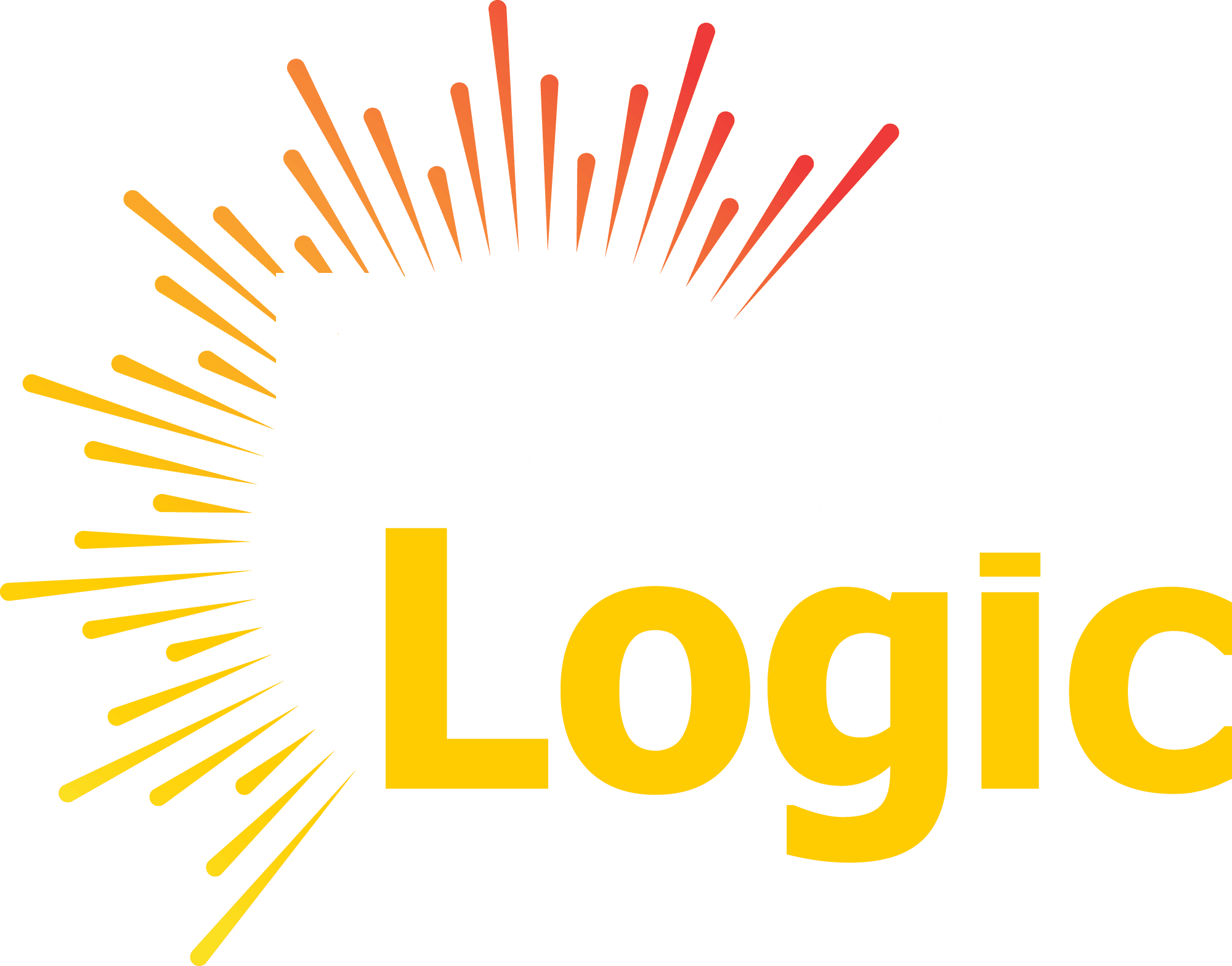With the rise of artificial intelligence (AI) technologies like Alexa, Google search, and autonomous vehicles, the future of search revolves around AI-driven capabilities. Traditionally, typing text into a search box yielded relatively uniform results for most users. However, advancements in AI now enable the generation of more pertinent results that adapt in real-time, considering factors such as browsing history, inferred user intent, and top-performing content from analogous searches. AI-powered site search holds promise in delivering precisely what site users seek, thus facilitating the fulfillment of business objectives such as heightened customer satisfaction, improved conversion rates, and augmented revenue.
But what exactly constitutes AI-powered site search, and why should businesses take heed of its significance?

Table of Content
- What is Site Search?
- What is AI-powered Site Search?
- How Does AI Search Work?
- The Need for AI-powered Search is Growing
- Benefits of using AI-powered Site search
- How to Start Bringing AI into Search
- Conclusion
What is Site Search?
Site search is like the compass of a website, helping users move through a sea of information to find what they’re looking for. The digital map guides visitors to their desired destination within a website’s content labyrinth. But what happens when this search function evolves beyond mere keywords and becomes AI-powered? Enter the realm of AI-powered site search—a game-changer in online navigation.
Site search functionality is a prevalent feature on websites housing extensive content, including e-commerce platforms, news outlets, blogs, and corporate websites. It helps users move through the site more efficiently by providing them with direct access to the content they are looking for, rather than requiring them to browse through menus or categories.
What is AI-powered Site Search?
Artificial intelligence search engines in computing mirror human intelligence, capable of learning and adjusting to data inputs. With AI-powered search, platforms independently enhance search experiences by analyzing user data in real time. This continuous learning process fine-tunes search results in the background, leveraging various factors like past user behaviors, common spelling mistakes, and the context of search questions.
Unlike manual adjustments or coded parameters, AI automates these tasks at scale without requiring human intervention. Furthermore, AI facilitates system adjustments to enhance accuracy and relevance, akin to human learning and improvement over time.
This technology powers search functionalities across platforms like Pinterest, where AI assimilates insights from millions of image-based searches conducted monthly. With a vast user base exceeding 320 million and billions of pinned items, Pinterest’s deep learning models decipher search intent, delivering personalized results for each user. For instance, a question for “diy kitchen cabinets” yields diverse results, spanning from instructional guides on cabinet building to visual transformations of kitchen spaces. As users engage with more content, the AI model refines its understanding of their preferences, progressively tailoring search outcomes.
Imagine has a search engine that not only understands keywords but also interprets user intent, learns from interactions, and continuously refines its results to provide the most relevant content. That’s the magic of AI-powered site search. It’s like having a savvy tour guide who not only knows where everything is but also anticipates what you want to see next.
How Does AI Search Work?
The core of an AI-driven search engine encompasses sophisticated technologies such as Natural Language Search and machine learning. These algorithms enable the search engine to understand the nuances of human language, decipher user questions, and deliver personalized results. Instead of relying solely on exact matches, AI search engines analyze context, user behavior, and content relevance to provide more accurate results.
NLP and Machine Learning
The ability to understand language using NLP enables AI to mimic human understanding. It enables the search engine to grasp the meaning behind words, phrases, and even entire sentences. On the contrary, machine learning empowers the search engine by allowing it to learn from previous interactions and adjust its algorithms accordingly. This dynamic duo forms the backbone of AI-powered site search, making it more intelligent and user-friendly than ever before.
The Need for AI-powered Search is Growing
In today’s digital era, where information overload is ubiquitous, conventional search methods often prove inadequate. Users increasingly demand more intuitive, personalized experiences, prompting the rise of AI-powered search engines. From e-commerce platforms to knowledge bases, websites across various sectors harness AI to elevate their audience’s e-commerce site search experience.
Semantic Search
An integral aspect of AI-powered site search is semantic search, which surpasses mere keyword matching to grasp the context and intent behind user questions. By dissecting the meanings of words and their interrelations, semantic search yields more pertinent results, even in instances where the precise terms are absent from the content. This ensures that users locate the information they seek, even if they struggle to articulate it precisely.
Voice and Visual Search
With the emergence of voice assistants and visual recognition technology, AI-powered site search is expanding beyond text-based questions. Users can now search for products, information, or images using their voice or even pictures. This method of search, which requires no hands and is intuitive, not only improves accessibility but also meets the increasing demand for smooth, multi-modal interactions.
Benefits of using AI-powered Site search
The advantages of AI-powered site search are manifold. From improved relevancy and personalization to faster search results and increased user satisfaction, the benefits are undeniable. By leveraging AI capabilities, websites can optimize the search experience, enhance user engagement, and increase conversion rates. Whether you’re running an online store, a knowledge base, or a content platform, AI-powered site search can take your website to the next level.
Enhanced Relevance: AI algorithms analyze user data in real-time to deliver search results tailored to individual preferences and behaviors, ensuring greater relevance and user satisfaction.
Improved Accuracy: By continuously learning from user interactions and feedback, AI-powered site search algorithms refine search results, minimizing irrelevant or erroneous matches and enhancing the overall accuracy of search outcomes.
Personalization: AI algorithms personalize search experiences by understanding user preferences, browsing history, and contextual cues, enabling the delivery of highly relevant and personalized search results for each individual user.
Time Efficiency: AI-powered search accelerates the search process by quickly identifying the most relevant content based on user intent, reducing the time users spend searching for information and increasing overall productivity.
Scalability: AI-powered site search can efficiently handle large volumes of data and user questions at scale, ensuring consistent performance and responsiveness even as user traffic and data volumes increase.
Adaptability: AI algorithms adapt to evolving user preferences, trends, and changes in data patterns, ensuring that search results remain relevant and up-to-date over time.
Automation: AI-powered site search automates various tasks such as result ranking, content categorization, and question understanding, reducing the need for manual intervention and streamlining the search process.
Insights Generation: AI algorithms analyze user behavior and search patterns to uncover valuable insights into user preferences, trends, and emerging topics, enabling organizations to make data-driven decisions and improve their services or products.
How to Start Bringing AI into Search
Integrating AI-powered site search into your website may seem daunting, but it doesn’t have to be. Many third-party solutions offer plug-and-play AI search engines that seamlessly integrate with existing platforms. By partnering with a trusted provider, you can unlock the secrets of AI-powered site search without the need for bespoke development. These solutions offer user-friendly interfaces and customizable features, making AI accessible to businesses of any scale.
Define Objectives: Precisely articulate the aims and objectives of incorporating AI into the search process. Identify key performance metrics such as relevance, accuracy, personalization, and efficiency that you aim to improve with AI.
Data Preparation: Gather and organize relevant data sources such as user interactions, search questions, click-through rates, and content metadata. Ensure data quality and consistency to facilitate accurate AI-driven insights and predictions.
Select AI Technologies: Assess various AI technologies, including machine learning, natural language processing (NLP), and deep learning, to ascertain the optimal approaches for your search application. Consider factors like data complexity, scalability, and the level of customization required.
Build or Acquire Models: Develop AI models tailored to your specific search requirements or leverage pre-trained models available through AI platforms or libraries. Train the models using labeled data to enable accurate prediction of user intent, content relevance, and other search-related factors.
Integration with Search Infrastructure: Integrate AI models seamlessly into your existing search infrastructure or deploy them within AI-powered search engine platforms. Ensure compatibility with your search engine or content management system (CMS) to enable efficient data processing and retrieval.
Iterative Development: Iterative Development involves consistently honing and enhancing AI models by incorporating user feedback, analyzing performance metrics, and adapting to evolving search trends. Incorporate new data sources, update model parameters, and adjust algorithms to improve search accuracy and relevance over time.
User Testing and Feedback: Perform comprehensive testing and assessment of AI-driven search features by engaging real users, gathering their feedback, and pinpointing areas ripe for enhancement. Monitor user satisfaction, engagement metrics, and search performance indicators to gauge the effectiveness of AI integration.
Monitoring and Maintenance: Implement robust monitoring and maintenance processes to ensure the ongoing performance and reliability of AI-powered search. Regularly monitor the health of the system, the quality of data, and the performance of models, promptly addressing any issues or anomalies that arise.
Compliance and Privacy: Ensure compliance with data protection regulations and privacy standards when gathering, storing, and analyzing user data for AI-driven search engines. Implement suitable security measures and obtain user consent as needed to protect sensitive information.
Training and Support: Offer comprehensive training and support to users, administrators, and developers engaged in the operation and utilization of AI-powered search engine functionalities. Offer resources, documentation, and training programs to help stakeholders understand the capabilities and best practices for maximizing the benefits of AI in search.
Conclusion
In the dynamic realm of online search, AI-driven site search stands out as a transformative force. Leveraging the capabilities of artificial intelligence, websites can now offer users more intuitive and personalized search journeys. From understanding natural language to adapting to user preferences, AI search engines revolutionize the way we move through the digital world. So, if you’re seeking more than just a traditional search experience, it’s time to explore the possibilities of AI-powered site search.
Need more information about site search? Reach out to our support team through the request form for clarification on any questions you may have. The PartsLogic Expert Support Team is here to help you. For further insights into the site search bar, explore our blog section and find answers to all your inquiries.






80 Responses
Your writing is so eloquent and persuasive You have a talent for getting your message across and inspiring meaningful change
Share your favorite blog post in the comments below!
Your posts are like a breath of fresh air I appreciate how you tackle difficult topics with grace and empathy
Every time I read a new post, I feel like I’ve learned something valuable or gained a new perspective. Thank you for consistently putting out such great content!
I have been struggling with this issue for a while and your post has provided me with much-needed guidance and clarity Thank you so much
Your blog has become a source of guidance and support for me Your words have helped me through some of my toughest moments
Your blog always puts a smile on my face and makes me feel better about the world Thank you for being a source of light and positivity
Thank you for providing a positive and constructive space for discussion It’s refreshing to see a blog with a kind and respectful community
Let us know in the comments which of their posts has resonated with you the most.
I love how you incorporate personal stories and experiences into your posts It makes your content relatable and authentic
Your writing is a breath of fresh air It’s clear that you put a lot of thought and effort into each and every post
Your photography and visuals are always so stunning They really add to the overall quality of the content
From the bottom of my heart, thank you for being a source of positivity and light in this sometimes dark and overwhelming world
Your posts are always so relatable and relevant to my life It’s like you know exactly what I need to hear at the right time
Your knowledge and expertise on various topics never ceases to amaze me I always learn something new with each post
Your writing is so refreshing and authentic It’s like having a conversation with a good friend Thank you for opening up and sharing your heart with us
Your blog post had me hooked from the first sentence.
Your blog post was fantastic, thanks for the great content!
Thank you for creating such valuable content. Your hard work and dedication are appreciated by so many.
From the insightful commentary to the captivating writing, every word of this post is top-notch. Kudos to the author for producing such fantastic content.
Your blog stands out in a sea of generic and formulaic content Your unique voice and perspective are what keep me coming back for more
I appreciate the effort that goes into creating high-quality content, and this post was no exception. The insights and information were top-notch and made for a really engaging read. Keep up the great work!
It’s clear that you are passionate about making a positive impact and your blog is a testament to that Thank you for all that you do
Your blog is a ray of sunshine in a sometimes dark and dreary world Thank you for spreading positivity and light
Your latest blog post was truly inspiring and had some great insights. I can’t wait to see what else you have in store.
This blog post has left us feeling grateful and inspired
I just wanted to take a moment to express my gratitude for the great content you consistently produce. It’s informative, interesting, and always keeps me coming back for more!
Wow, this blogger is seriously impressive!
Your posts always leave me feeling motivated and empowered You have a gift for inspiring others and it’s evident in your writing
Your positivity and enthusiasm are infectious It’s clear that you are truly passionate about what you do and it’s inspiring to see
Your honesty and vulnerability in sharing your personal experiences is truly admirable It takes courage to open up and I applaud you for it
I appreciate the effort that goes into creating high-quality content, and this post was no exception. The insights and information were top-notch and made for a really engaging read. Keep up the great work!
This blog is like a breath of fresh air in the midst of all the negativity on the internet I’m grateful to have stumbled upon it
Your blog has become a source of guidance and support for me Your words have helped me through some of my toughest moments
Your posts are so thought-provoking and often leave me pondering long after I have finished reading Keep challenging your readers to think outside the box
Let us know in the comments which of their posts has resonated with you the most.
Your posts are so beautifully written and always leave me feeling inspired and empowered Thank you for using your talents to make a positive impact
Your blog has become my daily dose of positivity and inspiration It’s a space that I always look forward to visiting
Your vulnerability and honesty in your posts is truly admirable Thank you for being so open and authentic with your readers
I can’t get enough of your insightful articles and engaging stories. Thank you for sharing your passion with the world!
As a new reader, I am blown away by the quality and depth of your content I am excited to explore your past posts and see what else you have to offer
Your vulnerability and honesty in your posts is truly admirable Thank you for being so open and authentic with your readers
I love how this blog gives a voice to important social and political issues It’s important to use your platform for good, and you do that flawlessly
Your words have resonated with us and we can’t wait to read more of your amazing content. Thank you for sharing your expertise and passion with the world.
Your vulnerability and honesty in your posts is truly admirable Thank you for being so open and authentic with your readers
The photographs and visuals used in this blog are always stunning They really add a beautiful touch to the posts
Your writing style is so engaging and makes even the most mundane topics interesting to read Keep up the fantastic work
The topics covered here are always so interesting and unique Thank you for keeping me informed and entertained!
It’s clear that you truly care about your readers and want to make a positive impact on their lives Thank you for all that you do
Thank you for providing a positive and constructive space for discussion It’s refreshing to see a blog with a kind and respectful community
Your blog has helped me through some tough times and I am forever grateful for your positive and uplifting content
Your vulnerability and honesty in your posts is truly admirable Thank you for being so open and authentic with your readers
Wow, I had never thought about it in that way before You have really opened my eyes to a new perspective Keep up the great work!
As a fellow blogger, I can appreciate the time and effort that goes into creating well-crafted posts You are doing an amazing job
Your positivity and optimism are contagious It’s impossible to read your blog without feeling uplifted and inspired Keep up the amazing work
Your blog post was really enjoyable to read, and I appreciate the effort you put into creating such great content. Keep up the great work!
I can’t get enough of your insightful articles and engaging stories. Thank you for sharing your passion with the world!
Keep up the incredible work! I can’t wait to see what you write next.
I always look forward to reading your posts, they never fail to brighten my day and educate me in some way Thank you!
Thank you for sharing your personal experience and wisdom with us Your words are so encouraging and uplifting
Your posts always seem to lift my spirits and remind me of all the good in the world Thank you for being a beacon of positivity
I love how this blog covers a variety of topics, making it appeal to a diverse audience There is something for everyone here!
This blog post is worth the read – trust us!
This post hits close to home for me and I am grateful for your insight and understanding on this topic Keep doing what you do
Your writing is so engaging and easy to read It makes it a pleasure to visit your blog and learn from your insights and experiences
Your writing is so genuine and heartfelt It’s refreshing to read a blog that is not trying to sell something or promote an agenda
Wow, I had never thought about it in that way before You have really opened my eyes to a new perspective Keep up the great work!
The design and layout of this blog are so aesthetically pleasing and user-friendly It’s a pleasure to navigate through
Your writing has a way of resonating with me and making me feel understood Thank you for being a relatable and authentic voice
I love how you incorporate personal stories and experiences into your posts It makes your content relatable and authentic
It’s clear that you truly care about your readers and want to make a positive impact on their lives Thank you for all that you do
Your posts are so well-written and eloquent It’s impossible not to be moved by your words Keep using your voice to spread positivity
What topics would you like to see covered in future posts? Let us know in the comments.
It’s clear that you truly care about your readers and want to make a positive impact on their lives Thank you for all that you do
Share with us in the comments your favorite blog posts of all time!
Thank you for creating such valuable content. Your hard work and dedication are appreciated by so many.
Looking forward to your next post. Keep up the good work!
It’s not often that we come across content that really resonates with us, but this one is a standout. From the writing to the visuals, everything is simply wonderful.
I always leave this blog feeling inspired and motivated to make positive changes in my life Thank you for being a constant source of encouragement
This blog is not just about the content, but also the community it fosters I’ve connected with so many like-minded individuals here